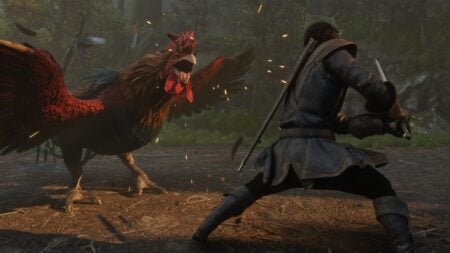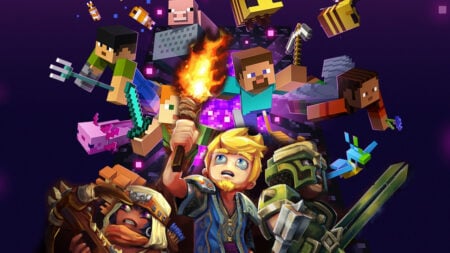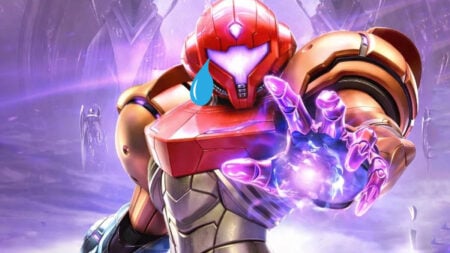Warning! Major spoilers ahead, maties. Ye have been warned. And if you’re looking for a recap, well, this isn’t strictly one. For that, ABC has its own, with videos. This, while covering the episode, is mainly a celebration. (Sorry, champagne not included). Because this is the show OUAT fans fell in love with. Adam and Eddie and the entire crew really delivered like never before on this one.
The two-hour episode lands on its feet, running. It knows what it wants, and it goes after it. It also knows what questions we had, and it doesn’t answer them with expositional dialogue or a culminating battle as we all expected. The show merely had to flip itself upside-down and slam us where it hurts to make us understand and bring that feeling of conclusion.

The beautiful thing about this episode is that it sets up unexpected emotional scenes that make us reflect on what we’d do or who we’d be in the same situation. Even as almost the entire cast loses their footing in who they are, it gives the audience the perfect chance to reevaluate who each of these people has grown into since season one. It gives the characters that chance, too. And in a way, by doing so, we the audience are able to walk in and among the cast, cheering and crying with them, staring and shivering at their deeds, rooting not so much for their victory as for overall justice. (Because no one should be a slave to a man playing God.)
And how much more powerful a goal is justice than victory? Sure, a victory can be celebrated. It can just as easily be forgotten. The pursuit of justice has been the goal of so many impactful stories—To Kill A Mockingbird by Harper Lee, for example, or The Green Mile, brought to the big screen by Frank Darabont—and indeed it is the higher call. Hence why Hook’s sacrifice hurts even after he’s saved; the death hurts, yes, but the lasting ache rises from the honor and faith motivating his actions, even in the face of hopelessness. It’s an ache of pride, affection, and that narratively-crucial fear.

The apparent simplicity of many moments in the finale is as touching as the dramatic flourishes. Emma and Henry’s reunion is simple, though her chains and hairdo are not. There’s also a simplicity and freedom to Emma’s character. She’s no longer the savior here, so whatever she might do is purely the result of her own agency, which she’s wanted since learning that she’s the savior (and learning of her parents’ veritable damnation of Lily). Seeing Emma freed from the chains but also the security net of this title sets her in a sort of free-fall towards either success or heartbreak. The inability to tell which is part of why this episode is so thrilling. Plus, the stakes here are real and her power’s limited. She and Henry risk not only life and limb, but a time limit hangs over them, and their family is at stake in more ways than one. Seeing them kill each other is horrible enough; but the notion that they could be cursed to stay this way eternally, existing in this lie of a reality where they lose all agency is such a dreadful concept that it’s almost unbearable. OUAT has never made this sort of empathetic resonance work so well, and it does work so well because no possible ending will be entirely happy. So it’s with a sickening delight that we see the roles of the heroes and villains reversed and watch Henry and Emma struggle against them, wondering how it will end.

That resonance rings through Emma’s conversation with Regina after Hook is murdered. “The worst part is that I never told him I loved him, not once; I was too scared,” Emma says. This is a land where Regina’s belief or lack thereof could doom them all and either result in Hook staying dead or not. It’s as simple as that. There’s no predestined savior here, just broken people and people (like Rumple) who stand to be broken. So much rides on these subtle moments of exchange. And what’s even more brilliant about it? Just because Emma and Henry undo Isaac’s writing doesn’t mean the consequences of human limitations don’t haunt Emma back to Storybrooke. Savior or not, someone has to take the fall at the end, because no outcome is completely happy for anyone. Despite her confession of love to Hook at long last, no hope is in sight for Emma before or after that talked-about twist ending.

In a moment reminiscent of Emma’s heartbreaking loss of Neil in Season 2, episode 21, she confesses her love to Hook just before taking on the role of Dark One. What was particularly eerie was that no screaming in pain happened in this scene. Even when the darkness surrounds Regina, she looks instead as if she’s going to cry like Dumbledore at the end of “The Half-Blood Prince,” drinking the vile horcrux water that makes him relive his worst memories. Worse still? Emma’s calm, grim expression as the darkness consumes her. A truly haunting balance between drama and simplicity, folks. And what’s most exciting is the promise this scene represents: That we’ll finally dig into some of the show’s oldest and most consistent magic: that of the Dark One.
Someone once said that to evoke emotions in the audience, an actor must underplay emotions on the stage. With this evidence, it’s hard to disagree.

As much can be said about Henry, who led the show in embracing a post-apocalyptic tone not a little reminiscent of AMC’s The Walking Dead. The chill came as much from the deadened landscape as from the sense of lost humanity that falls on the audience, knowing what’s happened to our beloved heroes and villains. The images as well: the storybook on the floor, the presumably empty cradle, the silently spinning record in Gold’s shop. Watching Henry stray through town, forced to dominate the screen solo (or in pairs later) rather than merely being cut to, following in his mother’s pre-Storybrooke footsteps by hunting down Isaac—in all this, Jared Gilmore has never looked more comfortable in his skin as Henry. Previously, his role was limited to encouraging other characters. Here, we see him in a very mature position, passing the empty cars and taking in his stride the devastating reality of Isaac’s catastrophe. Already, he’s determined to face it. But with all the rules of heroes-win broken, who’s to say what will happen? We have to watch.

The abilities and limitations of the author have come to an ominous head indeed. That cushion of surety that the good guys will always win or the bad guys be converted was not here this time, and the anxiety was intoxicating. Isaac calls Henry out as a poor innocent child who needs saving, but Henry defies him with an agency never granted to him before. He braves the treacheries of Isaac’s handiwork, and the way he went about it marked the first significant step (for me at least) Henry has taken towards becoming an independent adult who must face the consequences of his own choices. Does he still need the help of the adults? Yes. But something about him changes. He isn’t helpless. He comes into his own.
Later as the new author, Henry struggles to accept that Neil can’t be brought back to life by the pen, but the struggle is appropriately brief for his morally-guided heart. “The truth is what you must write,” he’s told. Many predicted Henry would become the next author, and rightfully so. This feels like the natural evolution for Henry, and one we’ve been waiting for. For seasons he has been that voice of truth and reason. In that way he’s been writing with the characters around him even before he truly had much influence over them. (Remember how tiny he was in season one?) So when Henry snaps the pen, declaring no one should have this much power, it’s the next step of his maturity. He has an independent role now. He chooses to continue to guide, to interact, but never to force. I can’t wait to see where this takes him next season.

Regina and Robin’s romance is one of the lighter, though still very bittersweet, threads in the finale. Their romance began this season fraught with tension, much of which dealt with problems they themselves brought to the table. In this scenario, though, we get to see what gets lost behind their real-world baggage. Here, their natural chemistry is allowed to work its magic. What hampered them before—Regina’s regret over her past, her frustration at her happy ending being ever out-of-reach, and Robin’s marriage and paternal complications—isn’t allowed to obstruct them here. Although Emma and Henry’s success (and Zelena’s interference) means it won’t last, seeing the pair like this at once breaks hearts and offers the hope that this is a glimpse of a possibility in the real-world as well.
The same bittersweet quality pulses through Rumple and Belle’s storyline, though far more intensely. Despite their happiness, it seems that even in this world some things don’t change. Isaac pays a visit, warning Rumple of Henry’s intent to undo this reality. Ever the one to doubt himself, Rumple’s good-natured role doesn’t seem like it will last. Or will it? In this upside-down world, we’re allowed to consider that he may not turn to his dark ways. In a display of honesty, Rumple turns to Belle seeking advice and admitting his fears outright, we’re forced to hope he’ll remain on the side of good. What tantalizing dreaming it is. This new reality allows us the viewers to imagine, if just for a few minutes, that Belle never had to banish her husband from Storybrooke. Of course, the broken teacup ominously foreshadows what’s to come. And in light of their final conversation back in Storybrooke, the bludgeoning power of the scene is only enhanced.

They’re bound to break. When Belle comes to stop Gold from causing further damage and finds him dying on his floor, we’re brought back to this reality as if in an icy splash of water. Having seen their good marriage as Belle tells him it could have been, their memories of Isaac’s reality clearly intact, the door swings wide for them to explore all those puss-filled wounds that have scarred their relationship. Too little, too late. Rumple pulls a Thriller and tells Belle to go before the last goodness fades from his heart and the Dark One takes over. After all this effort by Henry and Emma, it seems one of the show’s favorite characters is about to sink into the tragedy that Snow White and Charming were just saved from. And it’s exactly because they were saved from it that Rumple’s fate is now fatal. The man who has always used others as pawns is about to become a pawn to his own darkness. Emilie de Ravin and Robert Carlyle stole a lot of Romeo and Juliet’s thunder, to be sure. It was a brilliant move by the OUAT bosses that no matter how Emma and Henry’s efforts in Isaac-land turned out, someone would suffer.

So with that, it has to be said: You thought you hated the author before? Yeah, well, seeing him among fans of his new book “Heroes and Villains,” relishing in his fame with that know-it-all, self-satisfied attitude was so disgusting that Patrick Fischler deserves an immense amount of applause. He wrapped up a complicated season dotted with colorful characters and individually embodied so many of its themes, fears, and hopes. I think I speak for all OUAT fans when I say I hope the Once bosses will give us another humanly-fallible baddie next year. Even if it’s Emma.
At the end of the day, at least we can rest assured that we finally have our answer to those burning questions: Are all these characters only figures in a book, their lives manipulable by the mere tweak of a pen? What would that mean for Emma and Henry? Can we trust anything that’s happened in these characters’ lives? Is the good guys’ predetermined victory merely a pattern enforced by a writer? Have we been deceived all along?
The short answer: No. The storybook is mere documentation of events past. Or ought to be.
So what do you guys think? Was everything you wanted to be tied up nicely? Do you agree that all the character arcs took a turn for the better? Are you already pounding your fists and screaming for season 5? Will Isaac prove to be the penultimate (pun intended) baddie, and this new “darkness” the greatest evil our heroes will ever face? Or is this just the start of an even darker journey into a much deeper darkness?
[review]







